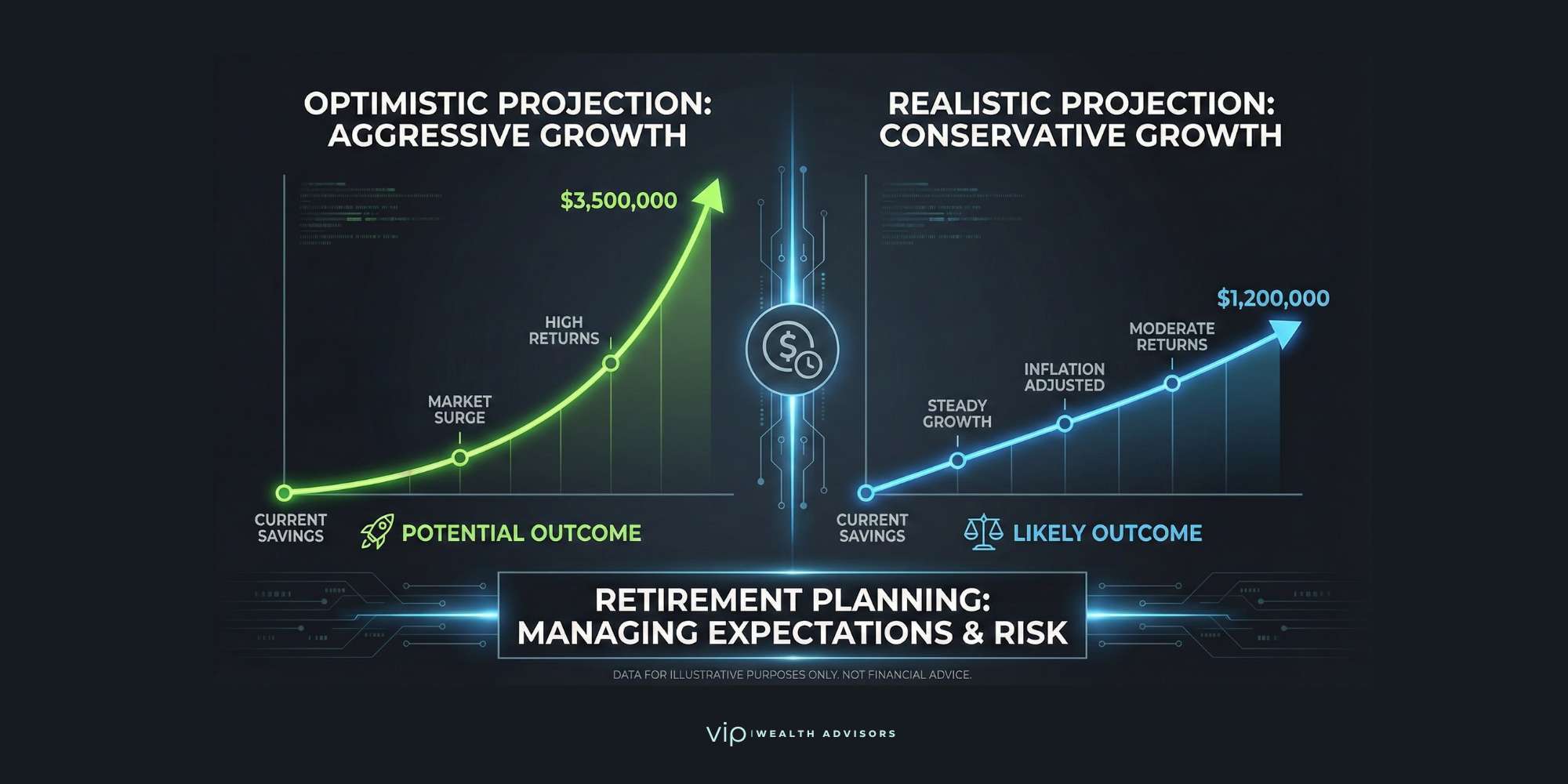When you turn on CNBC's Mad Money, you're not just watching a financial program; you're watching a performance. Jim Cramer is loud, energetic, and somewhat entertaining, but his rapid speech and tendency to mumble often make his advice hard to understand, despite his theatrical style. He slams buzzers, shouts stock tickers, and gives off the impression that he knows precisely where markets are headed next.
But here's the problem: investing isn't supposed to be entertainment. And if you confuse Jim Cramer's "Mad Money" theatrics with real financial advice, you could be setting yourself up for disappointment or worse, financial ruin.
As a CFP® professional and fiduciary advisor, I find Cramer's brand of stock picking misleading to investors. It encourages behaviors that the data shows are destructive to long-term wealth. Let's pull back the curtain on why.
The Problem with “Mad Money” Advice
Jim Cramer's style boils down to one thing: stock picking. He makes bold calls about buying or selling individual companies, often with great conviction. The problem? Decades of research show that stock picking simply doesn't work as a long-term strategy.
- SPIVA Scorecards: Consistently show that the vast majority of actively managed funds underperform their benchmarks over 5, 10, and 15-year periods.
- DALBAR: Investors who chase returns and attempt to time the market drastically underperform even simple index funds. This is exactly the type of behavior Mad Money encourages.
- Academic research: Eugene Fama and Kenneth French demonstrated that markets are broadly efficient. By the time a pick makes it to Cramer's lightning round, the odds of uncovering hidden value are slim to none.
In other words, following Jim Cramer's stock picks isn't investing. It's speculating. And speculation, over time, is a losing game.
Do Jim Cramer's Stock Picks Actually Outperform?
| Study / Evidence | Findings |
|---|---|
| Wharton School (2001–2016) | Cramer's charitable trust returned 64.5% vs. 70% for S&P 500. Lagged by ~2.2% annually once dividends included. |
| Short-Term Pops | 1–3% bump the day after airing, but gains reverse within 30 days. |
| Risk-Adjusted Results | Essentially zero excess return after accounting for volatility and dividends. |
| CNBC Investing Club | Portfolio has routinely lagged simple low-cost index funds like SPY or VOO. |
The takeaway is clear: for all the theatrics and conviction, Cramer hasn't demonstrated an ability to deliver consistent market-beating returns. A patient investor in a low-cost index fund would have done just as well — if not better — without the stress, noise, and tax drag of constant trading.
Or as I tell clients: it's not that Cramer is always wrong, it's that not being wrong doesn't justify the cost, risk, and volatility.
Behavioral Traps Amplified by “Mad Money”
- Fear and Greed: High-energy theatrics amplify emotional swings.
- Recency Bias: Hot stocks get spotlighted, tempting investors to overweight recent performance.
- Overconfidence: Cramer's conviction feeds a dangerous illusion of certainty. Confidence ≠ accuracy.
For individual investors, this cocktail of biases can be devastating. You end up trading more, paying higher taxes, and holding concentrated risks — all while falling behind a boring, diversified index investor.
Fiduciary vs. Entertainment
Here's the key distinction: Jim Cramer is an entertainer. His job is to capture ratings, not to safeguard your retirement.
- No one-size-fits-all stock tips.
- Every recommendation aligned with goals, risk tolerance, and tax picture.
- Success measured in retirement readiness, education funding, or business transitions — not hot picks.
What Actually Works
- Diversification: Broad-based exposure to global markets reduces risk while capturing long-term growth.
- Tax integration: Coordinating investments with proactive tax planning keeps more of your wealth working for you.
- Financial planning: Aligning money with life goals creates true financial security.
- Discipline: The best investors are patient, not reactive. They stick to a strategy instead of chasing buzzers and catchphrases.
These principles may not make for great TV. They don't come with sound effects. But they work.
The Bottom Line
Jim Cramer is a showman. He's built a brand around being entertaining, loud, and opinionated. And for what it is — television — Mad Money can be fun to watch.
But let's be clear: Cramer-style stock picking is not a wealth strategy. It's financial fast food — addictive, convenient, but ultimately empty calories.
Real wealth isn't built in a lightning round. It's built through patience, planning, diversification, and disciplined execution. That's what fiduciary advisors provide, and that's what investors truly need.
So by all means, enjoy the show. Just don't confuse Jim Cramer's “Mad Money” with a roadmap for your future.
🔎 Want Real Advice, Not Entertainment?
At VIP Wealth Advisors, we replace noise with evidence-based investing, tax-smart strategies, and fiduciary guidance built around your goals.
If you're ready for planning deeper than a lightning round, let's talk.
📅 Book Your VIP Planning CallView More Articles by Topic
- Taxes (81)
- Financial Planning (46)
- Equity Compensation (38)
- Investments (30)
- RSU (23)
- Tax Policy & Legislation (19)
- Business Owner Planning (17)
- Incentive Stock Options (16)
- Retirement (16)
- Psychology of Money (15)
- Alternative Investments (13)
- AMT (9)
- Pre-IPO Planning (9)
- Real Estate (9)
- Estate Planning (8)
- Fiduciary Standard (8)
- Crypto (6)
- NSOs (6)
- The Boring Investment Strategy (6)
- Capital Gains Tax (5)
- Private Investments (5)
- QSBS (5)
- Market Insights (4)
- Post-IPO Tax Strategy (4)
- 401(k) Strategy (3)
- Market Timing (3)
- Q&A (3)
- Stock Market (3)
- Venture Capital (3)
- Altruist (2)
- Charitable Giving (2)
- ETF Taxes (2)
- IRA Strategy (2)
- International Financial Strategies (2)
- Irrevocable Trust (2)
- Legacy Wealth (2)
- Video (2)
- AUM vs Flat Fee (1)
- Atlanta (1)
- Book Review (1)
- Carried Interest Planning (1)
- Depreciation & Deductions (1)
- Education Planning (1)
- Energy Markets (1)
- Precious Metals (1)
- QTIP Trust (1)
- Revocable Trust (1)
- Risk Management (1)
- Schwab (1)
- Solo 401k (1)








